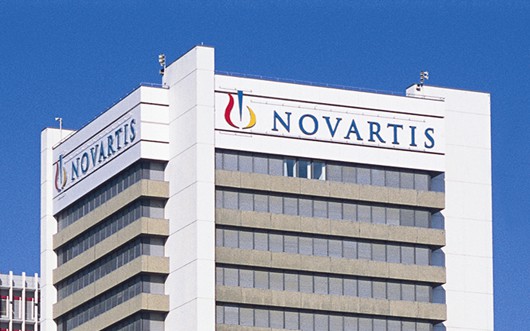
Just days after US President Donald Trump touted the use of an old malaria drug against the novel coronavirus disease COVID-19, Novartis has donated up to 130 million doses of the treatment for use in a number of investigational clinical trials.
The drug, hydroxychloroquine, as well as a related drug, chloroquine, are currently being evaluated for use against COVID-19 in clinical trials around the world.
Hydroxychloroquine is a derivative of chloroquine, and is less toxic form of the latter drug. While neither have been approved for use as COVID-19 treatments by the US Food and Drug Administration (FDA), Trump trumpeted the use of the choloroquine against the disease based on early data evaluating its efficacy against the novel coronavirus disease.
The early data of chloroquine and its derivatives has suggested that the drug could help to reduce the period in which people with the virus are infectious to others.
Clinical trials of chloroquine phosphate in China have also shown that the antimalarial drug has proven efficacy against the disease, with experts saying the treatment has a certain curative effect on COVID-19.
The drug has been evaluated in clinical trials across over ten hospitals in Beijing, as well as in Guangdong Province in southern China and Hunan Province in central China.
Patients receiving the drug demonstrated certain indicators of improvement that were absent in the placebo groups, including a reduction in fever, improvement in lung condition and a higher percentage of patients testing negative in viral nucleic acid tests within a shorter time period.
According to Sun Yanrong, the deputy head of the China National Center for Biotechnology Development under the Ministry of Science and Technology, the drug also caused patients to recover from the disease in a shorter time compared to those who had not received the treatment.
A small study of hydroxychloroquine in France, which testing the drug in 30 confirmed COVID-19 patients, also showed that the drug was effective in treating the novel coronavirus and reducing the duration of virus activity in patients.
Although the drug was effective on its own, when added to the antibiotic azithromycin, hydroxycholoroquine was found to produce a superior response, by a significant margin.
Analysts from Dawson James Securities concluded that “hydroxychloroquine treatment is significantly associated with viral load reduction/disappearance in COVID-19 patients and its effect is reinforced by azithromycin”.
Novartis, whose Sandoz division currently only holds a registration for hydroxychloroquine in the US, said it will seek “appropriate authorisations” for the use of the drug as a treatment for COVID-19 from the FDA and the European Medicine Agency.
The Swiss pharma also said it will work with a number of stakeholders, including the World Health Organization (WHO), to determine the best method of distribution of the drug to ensure the most in-need patients can access it, regardless of their location.
German pharma company Bayer also announced last week that it will donate three million tablets of its chloroquine phosphate product Resochin to the US government for emergency use against the novel coronavirus disease.
Chloroquine was first discovered in 1934, and is currently on the WHO’s list of essential medicines, and is readily available in generic form.
It has historically been used for the treatment and prevention of malaria from the Plasmodium vivax, P. ovale and P. malariae parasites.




